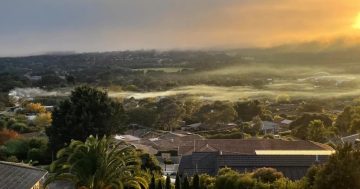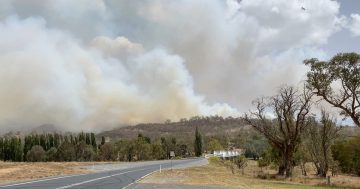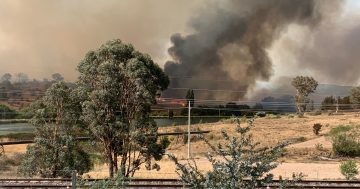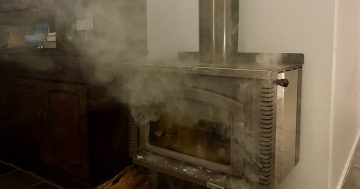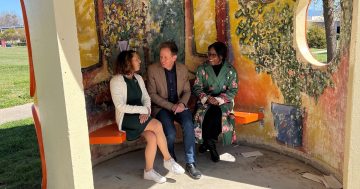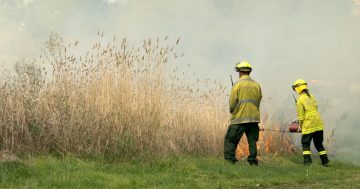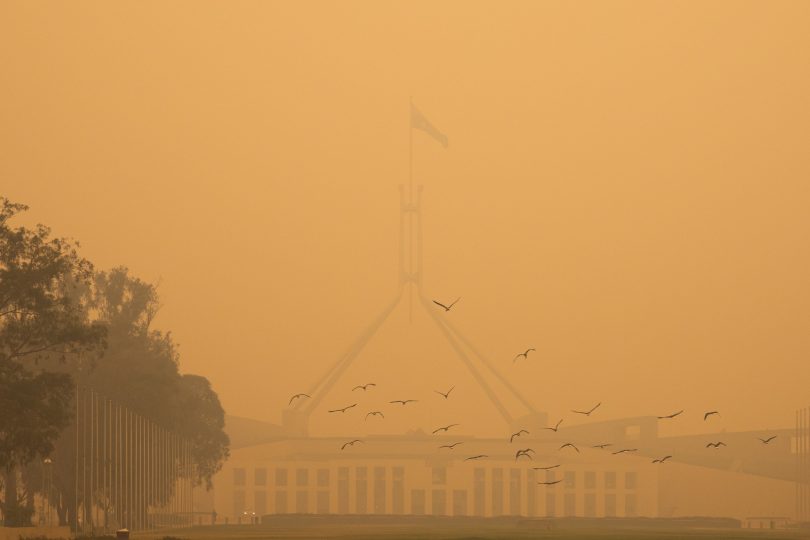
Smoke blanketing Parliament House. Photos: Region Media.
Canberra has now choked through a month of toxic smoke. This doesn’t compare to the horror that many of our South Coast neighbours have faced with the ongoing bushfire crisis, but this smoke haze is one of the consequences of an unprecedented bushfire season that experts had warned about.
It’s hard to fathom how we got here given the advice of fire services and emergency personnel wasn’t taken on by the Federal Government to whom we look for leadership and action. As we look back on the past weeks, we must pay tribute to our incredible fire and emergency workers who have fought the most recent bushfires and have supported evacuees.
Thick smoke still hangs in the air. Throughout this emergency, Canberra regularly made the top of the global ranking of most toxic air quality table. This is a scenario that just a few weeks ago would have been unfathomable.
Our city – the bush capital with crisp blue skies and beautiful mountain ranges – has on some days been reduced to a smoky ghost town where cultural institutions have closed their doors and when people do venture out, they do so with masks and worried faces. Each morning, as we breath the air inside our houses, adjust our eyes to the light we get some sense of what is in front of us for the day, and how we might need to modify our usual lives. It’s predicted to continue for many more weeks. While this isn’t a crisis that has the immediacy of flames threatening lives and homes, this is a slow-moving public health threat that our citizens could be living with for decades to come.
Unsurprisingly, those who are being most affected are the sick, the poor, the old and the vulnerable. Doctors and others are raising concerns about the impacts on vulnerable citizens.
A group of university students worried about homeless and vulnerable people took the initiative to source, purchase and distribute P2 masks. Now the ACT Government is working to distribute over 100,000 of these masks to vulnerable communities, It’s the case that these masks need to be fitted properly and do have limitations in the protection they provide. However, for some groups of people unable to stay inside, it’s one way to provide some kind of protection. With the shutting of many public facilities on the most dangerous days, an ongoing issue is how the most vulnerable in our community, those sleeping rough, heed the advice to stay indoors. While the volunteer-led, funded and managed Safe Shelter program operates in winter months to provide some comfort to people sleeping rough in the cold winter months, there is virtually nowhere for people to go to on these days of high risk.
Last year the ACT Government passed a motion recognising that we were facing a climate emergency, in part due to its understanding of an increasing risk of extreme weather events and increased bushfire risk. At the time we were yet to really understand what this meant. However, with this public health issue, this is perhaps the first test of our response to this emergency. And it feels like there is a need to act urgently to put in place measures to protect our health – particularly for those at most risk.
Some of what needs to happen will be the responsibility of those outside our city – the calls for a national climate and management plan, for better resourcing and equipment for neighbouring rural fire services.
However, there are still lessons for us here in the ACT. We have a history on reflecting on crises and learning lessons as was demonstrated in our response to the 2003 Canberra bushfires. Some of the things we could think about include a specific crisis management plan that is triggered when our air quality measures reach a specific hazardous point. We could consider conditions in approvals for private event operators that enable Governments to step in to ensure that there are not activities undertaken that further undermine air quality (yes, I am talking about Summernats). We could consider what are the best protective equipment in these types of scenarios and have a coordinated approach to distributing these if needed.
This is not normal. This current public health situation highlights the need for more action on issues related to this bushfire emergency. What do you think we need to do to respond to the immediate and long-term health impacts of extreme weather events such as bushfires?
Rebecca is an ACT Greens candidate for the seat of Kurrajong in the 2020 Territory election.












